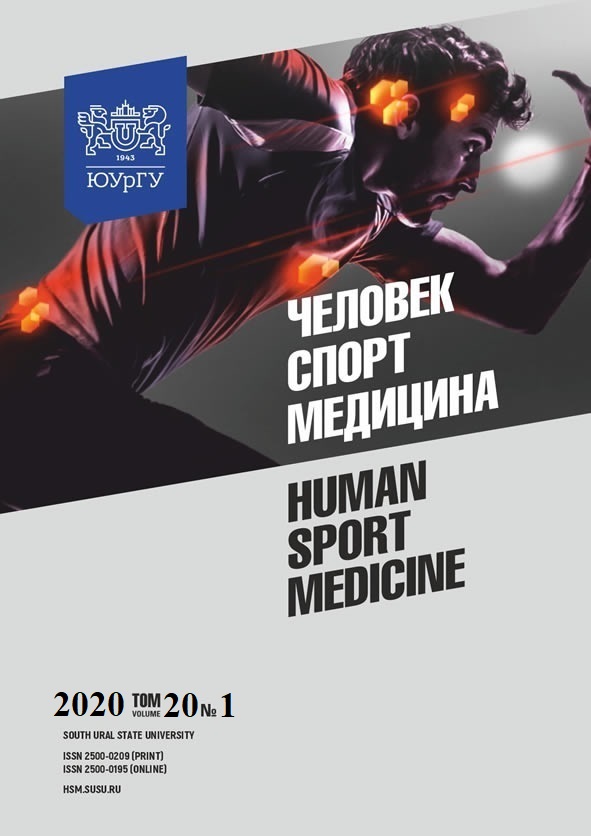THE USE OF FORCE PLATFORM FOR AFTER STROKE REHABILITATION
Abstract
Aim. The article deals with searching for the new effective methods of physical rehabilitation in stroke patients. Materials and Methods. The program of physical rehabilitation involved 42 patients aged from 30 to 80 years with the consequences of ischemic stroke in the early recovery period (up to six months), movement disorders, imbalances and postural disorders, reduced self-care capacity and mobility, reduced quality of life. The program included exercises with balancing platforms and training sessions on a force platform with biofeedback. Results. Comparative analysis revealed the positive dynamics of the balance function and balance when walking. The area of the center of pressure and its oscillations measured in the frontal and sagittal planes changed significantly, the velocity of the center of pressure, the maximum amplitude in the frontal plane, and the area of the statokinesiogram decreased. Conclusion. Comprehensive physical rehabilitation with balancing platforms and training on a force platform in the early recovery period helps to improve motor skills and balance, as well as to improve the quality of life and mobility of stroke patients.
References
References on translit
Copyright (c) 2020 Human. Sport. Medicine

This work is licensed under a Creative Commons Attribution-NonCommercial-NoDerivatives 4.0 International License.















